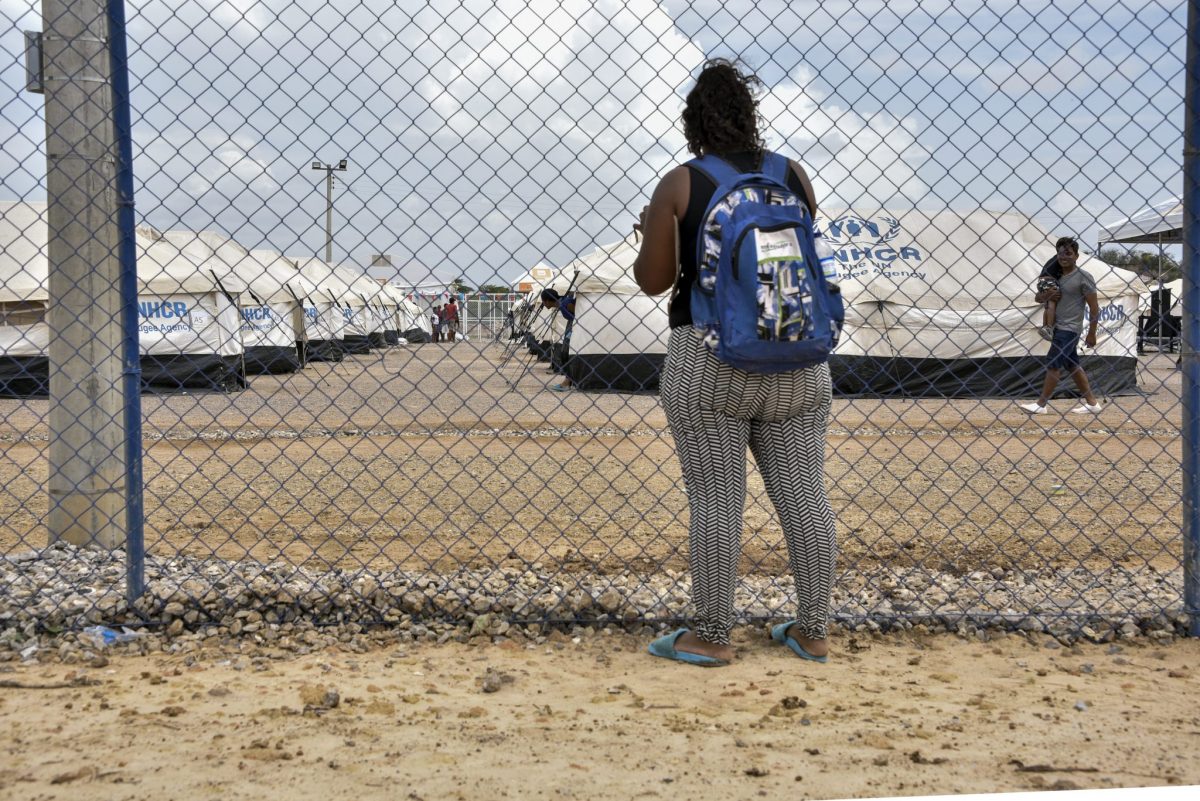

A woman looks inside a UNHCR refugee camp in the border between Colombia and Venezuela on June 8, 2019 in Maicao, Colombia. (Photo by Guillermo Legaria/Getty Images)
A new gender analysis conducted near the Venezuelan and Colombian border found that there is a major sexual and reproductive health crisis. The analysis, carried out by CARE —an international humanitarian aid organization— also found that 48 percent of Venezuelan refugees are at risk of gender-based violence.
“What we discovered was a crisis of the direst gender dimension, and far worse than what we had expected,” said Susannah Friedman, Humanitarian Policy Director at CARE and team leader for this investigation.
The research for the CARE Rapid Gender Analysis was only conducted from May 6 to 13 and spoke to over 45 people, but the alarming results found in the span of that week led researchers to believe the crisis female Venezuelan refugees and migrants live is much worse than believed.
There are over 3.7 million Venezuelans who have fled the country, and Colombia hosts more than 1.2 million. Much of the violence women face happens at one of the 130 informal borders.
Friedman told Latino Rebels that one of the more troubling issues CARE researchers encountered was a surge in gender-based violence, which they conclude to have been normalized.
“Some [women] reported sexual violence as taxation to cross the border at informal crossings, others noted that this practice was commonplace. However, given fears of retaliation and deportation, reporting of gender-based violence is extremely low,” read the analysis.
Some of the women they spoke to also revealed that women are sometimes offered sheltered by Colombian men, which results in domestic servitude, “sometimes in the form of sex slavery.”
According to Colombian news outlet La Opinión, a preliminary report found that 90 percent of the 500 sex workers surveyed in Ocuña are from Venezuela, and according to Friedman and her team, a lot of the women who turn to sex work could potentially be minors.
Friedman explained that many of the women they spoke to said that mothers often encourage their daughters to engage in transactional —or survival— sex because there is a lack of options and job scarcity for people without proper documentation.
CARE’s analysis also found that lack of access to basic health services in Venezuela leads women, especially those who are pregnant or with small children, to cross the border seeking prenatal care and vaccines.
“In the few days we were there, you couldn’t help but notice the preponderance of visibly pregnant women,” said Friedman.
She described that based on observation alone, every day at least half if not more of the women crossing are pregnant or with small children, and most go back to Venezuela. Friedman says that the Colombian healthcare system can’t sustain the increasing level of demand.
She recalled an instance at the Simón Bolívar Bridge, which connects both countries, where a pregnant woman collapsed and miscarried. “Border agents said that this was not the first time this happens,” she said.
Friedman adds that there is a very deep and serious level of need. She believes that although humanitarian assistance addresses the symptoms, the solution to the crisis needs to be a political one.
“The crisis is a lot deeper than what we understand, and the scale of the response does not seem to be centric to the crisis,” she said.
The CARE report is available here:
***
Natalia Rodríguez Medina is the 2019 summer correspondent for Latino Rebels. She is a member the Craig Newmark Graduate School of Journalism at CUNY’s Class of 2019. Natalia tweets from @nataliarodmed.


